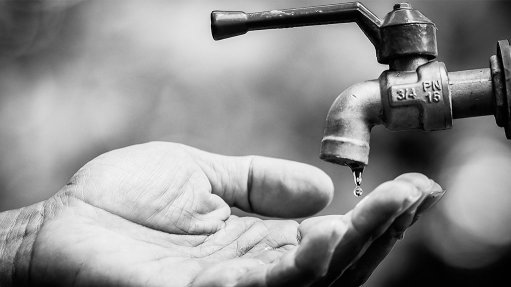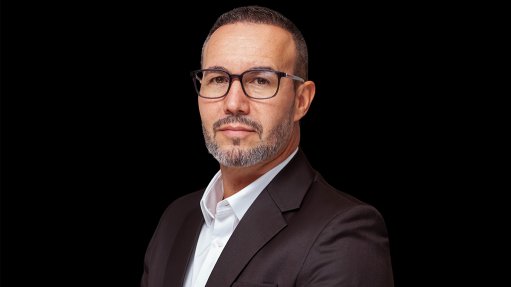Ethiopian Prime Minister, marathon runner do country proud
Once in a generation comes a political leader who has the confidence, the power and the political will to transform the lives of millions. And once in a lifetime comes an individual with the power and determination to inspire millions to individual excellence. That they both come from the Horn of Africa and hit world news in the same week is unprecedented. Ethiopia’s Prime Minister, Abiy Ahmed Ali, has won the 2019 Nobel Peace Prize and Eliud Kipchoge has broken the two-hour barrier for a marathon.
On October 11, the Nobel committee awarded Abiy the peace prize for “his efforts to achieve peace and international cooperation, and in particular for his decisive initiative to resolve the border conflict with neighbouring Eritrea”.
Abiy and Eritrean President Isaias Afwerki signed a peace deal in July 2018 that reopened long-closed borders, re-established trade and diplomatic relations and allowed free movement of people between the two countries, ending two decades of hostility and political stasis. Unlike Nelson Mandela and FW de Klerk, who shared the award, Abiy wins in his own right. Afwerki is an unpredictable belligerent who used border tensions to justify compulsory national service, through which citizens are forced into low-paying jobs and banned from travelling.
By contrast, solving the border problem with Eritrea was just one of a list of reforms that 43-year-old Abiy has implemented at high speed in just over 18 months in office. A former lieutenant colonel in Ethiopia’s military intelligence, born to a Christian mother and a Muslim father in Oromo state, Abiy drew attention as only the second non-Tigrayan since 1991 to be elected chair of the ruling Ethiopian People’s Revolutionary Democratic Front (EPRDF) and so become Prime Minister.
Abiy immediately set about implementing his list. Alongside talks with Eritrea, he released political prisoners at home, established press freedoms and revolutionised politics by appointing women to 50% of Cabinet posts. Parliament subsequently elected Sahle-Work Zewde as Ethiopia’s first woman head of State and Africa’s fifth. Next, Abiy ‘delisted’ domestic and exiled groups that his EPRDF had previously banned as ‘terrorist’ organisations, including the Oromo Liberation Front and the Ogaden National Liberation Front. He invited exiles to return and encouraged militia groups to disarm and form political parties.
It soon became clear that domestic reforms were ground-breaking and determined and that Abiy would use both carrot and stick to achieve his goals. On August 4, 2018, he sent the federal army to the Somali regional state capital, Jigjiga, to remove the state’s President, Abdi Mohamoud Omar, after local protesters, unimpeded by Omar’s heavily armed paramilitary police, set fire to a church, looted shops and attacked non-Somalis. Omar’s was a decade-long brutal regime that imprisoned and tortured without trial, forced thousands of ethnic Somalis into exile and caused trouble with other states. Abiy invited United Nations human rights activist Mustafa Omer to return to serve as acting regional state President. Omar now faces trial for his crimes.
The political landscape taking shape in the newly established democracy is loud and vibrant. Liberalisation has seen a proliferation of political parties: 107 at last count, which the national election board has urged to form coalitions to qualify for State funding. Abiy has promised to hold free, fair and transparent elections in May 2020 – even though it will present the ruling party with its first real challenge. In preparation, the EPRDF – itself a four-party ruling coalition – has added the Oromo Democratic Front. So, Abiy, himself an Oromo, consolidates power within the ruling coalition and in the country’s largest group with 34% of the population. All the while he is championing a new, national identity: Ethiopian and ethnic group simultaneously.
However, Abiy’s lifting the lid on autocracy and the speed of change have led to a spike in ethnic nationalism, as previously excluded groups vie for power. This has led to political and ethnic clashes, and civilian deaths. Constitutional reforms now allow states to opt for greater autonomy, to choose their official working language, to have local taxation powers, control of education, health and land administration. Demands for autonomy have prompted others, such as the smallest minority, the Sidama, representing 4% of the 80-million population, to demand full independence from Ethiopia. This has raised fears of a domino effect where other groups will seek full independence also.
Fears exist for Abiy’s safety, too. Armed attackers killed the army chief of staff, Seare Mekonnen, and four other senior Amhara region officials in what the Prime Minister’s office described as an “orchestrated coup attempt”. The attempted coup may have its root in Abiy’s equally dramatic attack on politically entrenched corruption.
Days after the State broadcaster showed a documentary alleging corruption around the Grand Ethiopian Renaissance Dam (GERD), Abiy ended State-owned conglomerate Metals & Engineering Corporation (METEC)’s involvement in the project. Several senior officials, mainly ethnic Tigrayans, were arrested and charged. Ending the METEC’s involvement closed off an important source of the ruling elite’s power and wealth. The METEC’s role in the economy is considerable: it has influence in most sectors from GERD to arms factories, to a new fertiliser factory, sugar factories, logistic to vehicles assembling, including public transport buses.
Investors continue to see Ethiopia as a frontier market – investable for the long term because of the size of the market but a difficult one in which to operate. Businesses complain that an entrenched statist mindset, exchange controls and distrust – even dislike – of the private sector have hampered investment and business development and tempered economic growth. That may be about to change, too: government has announced the development of a capital market, new private banking licences, a gradual, three-year exchange rate liberalisation, and new communications licences.
What both Abiy and Kipchoge show the world is that life is not a marathon after all but a series of calculated sprints strung together to achieve great things and inspire the world.
Article Enquiry
Email Article
Save Article
Feedback
To advertise email advertising@creamermedia.co.za or click here
Announcements
What's On
Subscribe to improve your user experience...
Option 1 (equivalent of R125 a month):
Receive a weekly copy of Creamer Media's Engineering News & Mining Weekly magazine
(print copy for those in South Africa and e-magazine for those outside of South Africa)
Receive daily email newsletters
Access to full search results
Access archive of magazine back copies
Access to Projects in Progress
Access to ONE Research Report of your choice in PDF format
Option 2 (equivalent of R375 a month):
All benefits from Option 1
PLUS
Access to Creamer Media's Research Channel Africa for ALL Research Reports, in PDF format, on various industrial and mining sectors
including Electricity; Water; Energy Transition; Hydrogen; Roads, Rail and Ports; Coal; Gold; Platinum; Battery Metals; etc.
Already a subscriber?
Forgotten your password?
Receive weekly copy of Creamer Media's Engineering News & Mining Weekly magazine (print copy for those in South Africa and e-magazine for those outside of South Africa)
➕
Recieve daily email newsletters
➕
Access to full search results
➕
Access archive of magazine back copies
➕
Access to Projects in Progress
➕
Access to ONE Research Report of your choice in PDF format
RESEARCH CHANNEL AFRICA
R4500 (equivalent of R375 a month)
SUBSCRIBEAll benefits from Option 1
➕
Access to Creamer Media's Research Channel Africa for ALL Research Reports on various industrial and mining sectors, in PDF format, including on:
Electricity
➕
Water
➕
Energy Transition
➕
Hydrogen
➕
Roads, Rail and Ports
➕
Coal
➕
Gold
➕
Platinum
➕
Battery Metals
➕
etc.
Receive all benefits from Option 1 or Option 2 delivered to numerous people at your company
➕
Multiple User names and Passwords for simultaneous log-ins
➕
Intranet integration access to all in your organisation


















